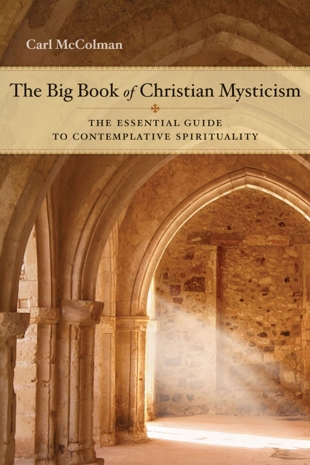Carl McColman is an author, teacher, and spiritual director, and the creator of www.carlmccolman.net, which includes a blog devoted to Celtic and mystical spirituality. He studied Christian meditation and contemplation at the Shalem Institute for Spiritual Formation and received additional training in the art of spiritual direction from the Institute for Pastoral Studies in Atlanta. His many books include 366 Celt: A Year and a Day of Celtic Lore and Wisdom. McColman is a lay associate of the Trappist Monastery of the Holy Spirit in Conyers, Georgia.
Mysticism and mystery belong together; mysticism is difficult to describe in words and or pin down to concepts. McColman says that it encompasses union with God, the experiential core of spirituality, the place where all religious differences are resolved and unity comes alive, an ancient wisdom tradition, and a way of life. What does it mean for Christians? The author writes:
"For Christians, mysticism is thus not a static concept. Rather, it suggests something dynamic — a process, energy, or movement. It involves a continual tension between what is hidden and what is revealed."
McColman describes the evolution of Christian mysticism beginning with the third chapter of Ephesians and moving on through the Golden Age of mysticism in the fourteenth, fifteenth, and sixteenth centuries to the twentieth century. Of course, other traditions have developed such as Kabbalah (Jewish mysticism), Sufism (Islamic mysticism), Vedanta (Hindu mysticism), Zen (Buddhist mysticism), and shamanism (indigenous mysticism). In a chapter on "Why Mysticism Matters," McColman salutes love as the heart of the Christian path which involves prayer, contemplation, reading the Bible and other sacred writings, serving others and being the presence of God in a troubled world. In a brilliant chapter, McColman delineates the many paradoxes of Christian mysticism which take us into the territory of "deep unknowing."
Since the kingdom of God is found within us, we are drawn naturally to community, whether that is through a church, a soul friend, or a spiritual director. The Christian mystical path also includes emptying ourselves and serving others in the name of Christ. McColman sees the contemplative life as a journey which involves practices such as devotional reading and meditation, both of which open us to mystical wisdom. Our lives are also enriched by learning from musicians, artists, poets, and writers. The author closes with a wide and diverse listing of mystics from the past and the present who are "worthy exemplars of the contemplative life."
